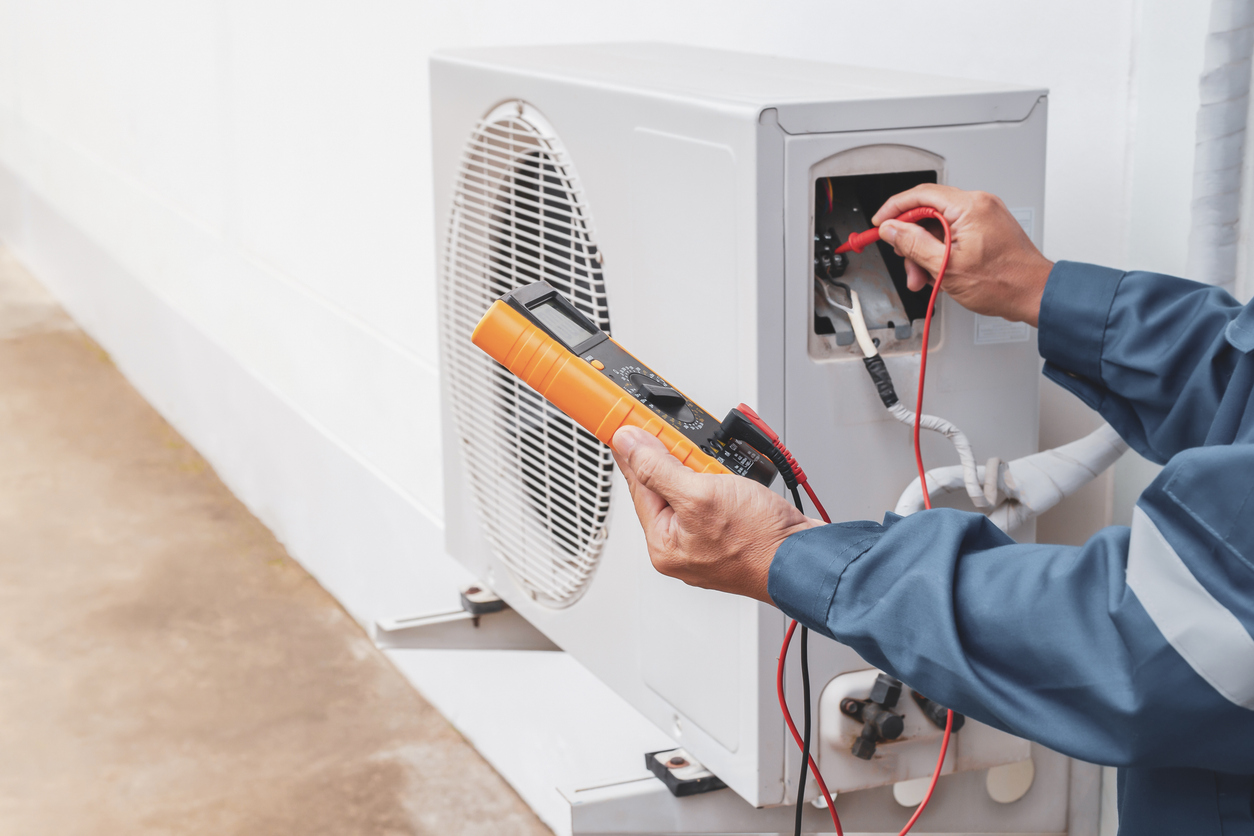
Part of being a homeowner is attending to household maintenance. Most maintenance you can take care of in your own time, and then there are emergencies, and it’s important to know the difference. You can fix a broken drawer whenever you have time, but a water leak needs immediate attention to prevent extensive damage. The same is true for emergency HVAC repairs. Understanding the distinction between emergencies and regular repairs for your heating or cooling system can save you time, money, and unnecessary stress when issues arise.
As HVAC professionals, Capital City Comfort Solutions can help you determine that important difference.
Schedule emergency repairs immediately to prevent damage to your home or risks to your family’s safety. HVAC services often offer 24-hour emergency lines and after-hours emergency services to address these problems as quickly as possible. But it comes at a price. Emergency services are costlier than the same repair scheduled more casually in the next few days.
The following are the top examples of HVAC emergencies that require immediate repair to keep your home and family safe.
Air conditioning heaters and furnaces are large electrical appliances. This means there is a potential for electrical failures, such as overheating wires, short circuits, and fire risks. Most of the time, the wire casings and harnesses are correctly installed and in good condition. But if you smell something burning, like hot plastic or a hot electrical smell, turn your entire HVAC off right away and call for emergency repairs.
A hot or burning smell could increase the risk of a fire or more catastrophic electrical failures.
If you detect a gas leak from your natural gas-powered heater, shut off the HVAC system and ventilate the house immediately. Open doors and windows and go outside to call for an emergency HVAC or gas leak service.
Your heating or cooling systems should not produce loud noises. Loud clunking or scraping sounds can originate from various sources, and none are favorable. This could indicate a broken fan blade that will continue to break and cause even more damage to your HVAC. Loud banging could also suggest that the inside of your AC is frosting over and the panels are flexing as a result.
Any overly loud banging or scraping noise from your HVAC should be considered an emergency, especially if it returns after you turn the HVAC off and back on again.
Your safety is paramount. If your heating fails in the middle of winter or your cooling fails in a sweltering summer, this has become an HVAC emergency. Call for repairs as soon as possible to ensure your family does not freeze or overheat without working HVAC.
However, if temperatures are mild, you can save money by waiting to schedule a routine service within the week.
Your air conditioner collects condensation, which should drain through the drip line. However, if there’s any clogging, water buildup can occur, posing a potential risk of stagnant water or leaks that could lead to significant water damage in your home.
If you see water pooling where it shouldn’t turn off your AC and call for emergency repairs to prevent water damage.
Routine HVAC repairs are non-urgent but may be inconvenient until the problem is fixed. You request a routine HVAC maintenance visit, and a service will be scheduled in the next few days. Often, you can book an inspection, tune-up, and general repairs within two days of your call, so even relatively urgent problems are fixed quickly. If the inspection reveals a bigger problem, a more serious repair can be completed with a second appointment in the next week or two.
Routine HVAC repairs are usually preventative. They involve replacing parts that are wearing down before they cause a problem. But you may also include non-emergency fixes if you have an HVAC failure that isn’t urgent.
Non-emergency HVAC services also come at a lower cost because no one needs to work overtime and, often, only standard parts replacements are necessary.
Non-emergency and routine HVAC problems include:
Understanding the distinction between emergency and routine HVAC repairs can empower you to save money and effectively manage household maintenance. If your HVAC loses efficiency or even begins making unusual, but not loud, noises, you have time to schedule a routine visit from your local HVAC technician at the standard cost. But if you smell burning or gas, hear loud noises, see water leaks, or if your HVAC fails in extreme temperatures, acting fast can allow you to call emergency HVAC repairs before further harm can occur.
Outside of malfunctions, routine HVAC maintenance once or twice a year can ensure that you avoid these emergencies and enjoy efficient, reliable heating and cooling all year round, while also extending your HVAC system’s effective lifespan.
Whether you need routine maintenance or an emergency HVAC repair, Capital City Comfort Solutions is proud to provide reliable HVAC technician services for your home. Contact us to book your next tune-up or any time you may experience an HVAC emergency. We’ll be there when you need us.